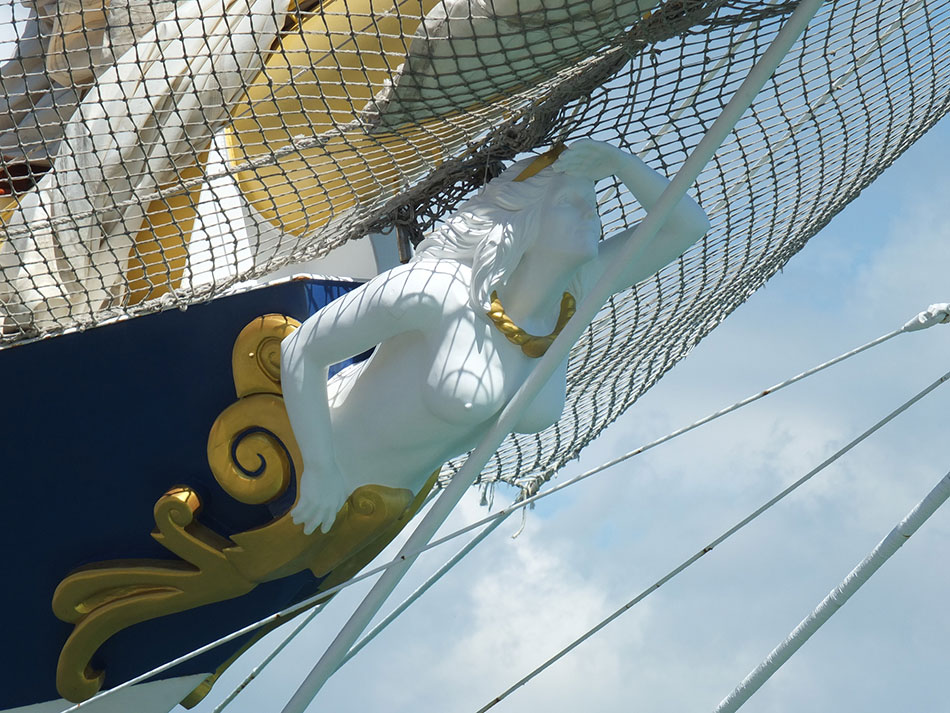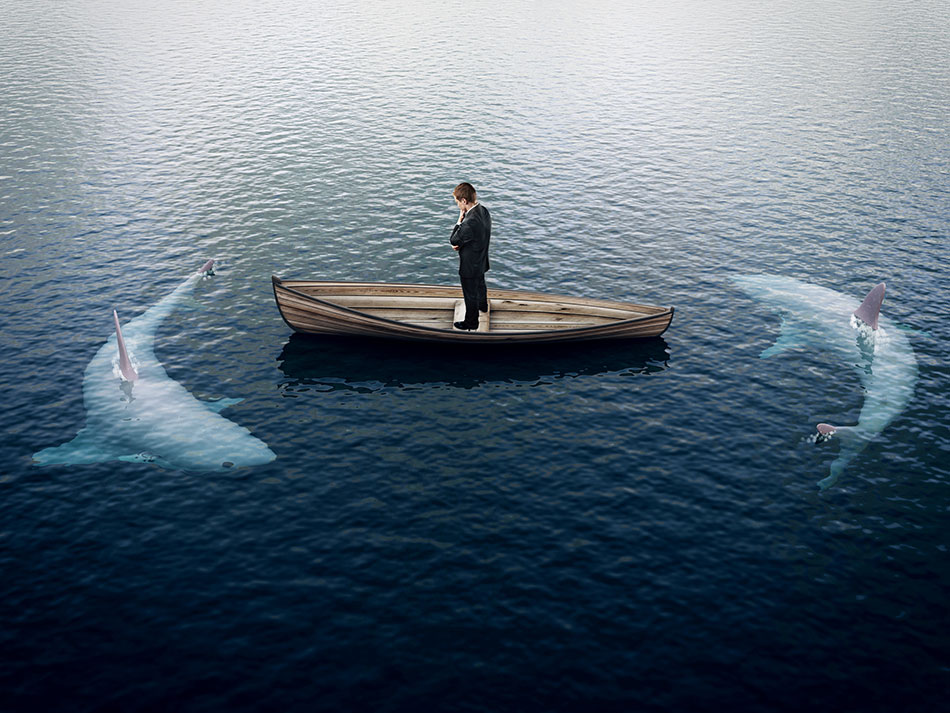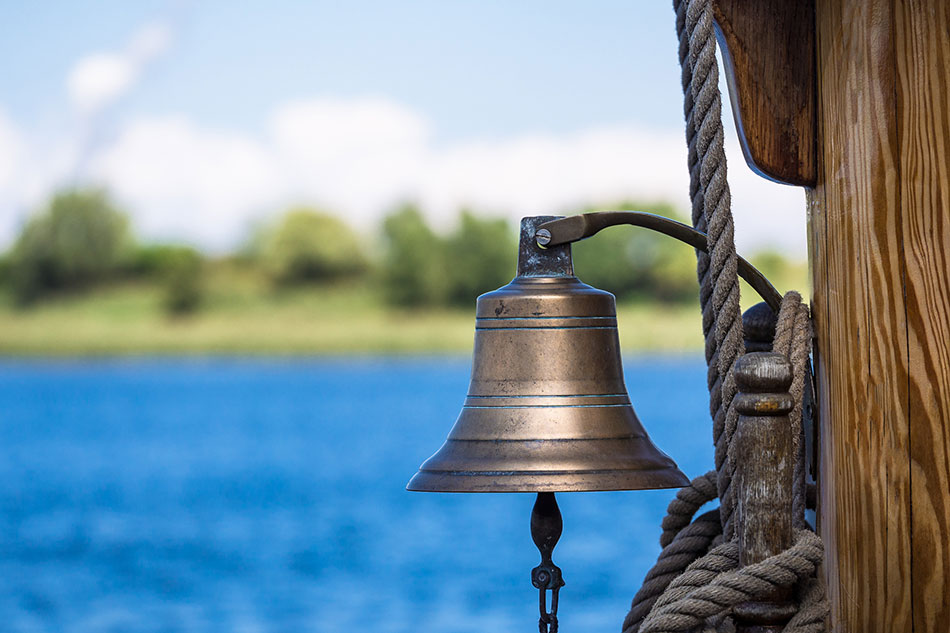Mysterious Myth or Superstitious Nonsense?

Ahoy there!
Sailors over the years have had many superstitions that they believed in. It is no wonder if you think about it as they navigated around the world with no satellites or ship to shore in-case of an emergency. Also, bear in mind as going to sea is one of the world’s oldest occupations, the time these myths were established, it is only natural that where inexplicable events have occurred, superstition and myth have played a major role in providing reasons for their occurrence.
So here are some of the Myths and Superstitions! Or are they?
No Bananas on Board Please
Bananas have long been thought to bring bad luck, especially on ships. At the height of trading between Europe and the Caribbean in the 1700’s, most cases of disappearing ships happened to be carrying a cargo of bananas or other ships had unexplained misfortunes. After all, when bananas were the biggest cargo it stands to reason more Banana boats will get caught up in events. Coincidence? Perhaps. Modern theory suggests that because bananas spoiled so quickly, Captains had to get to their destinations much quicker and this led to errors which proved fatal for the ships or another danger caused by bananas in holds which had no refrigeration was that the fermenting fruit could produce deadly toxic fumes which killed sailors in their sleep. If that was not enough the Bananas were not treated for pests and a particularly deadly species of spider would hide inside banana bunches. Their lethal bite caused crewman to die suddenly, heightening the fear that carrying bananas was a bad omen.
On Fishing vessels, it was also considered bad luck and thought that if anyone brought bananas on board, they would not catch any fish. As you can imagine fish are hard to track at the best of times even with GPS and Sonar equipment so in times before these they needed something to blame. Bananas were not the only thing blamed for misfortune. If you saw a red-haired person on the way to the boat it was bad luck. Or a black valise, a minister or a cross-eyed or flat-footed person.
I think the best bet was just to get someone to take you to the ship blindfolded.
Fishermen had a very dangerous job so it was no wonder they had more superstitions than normal sailors. As well as bananas on board you had to empty your pockets of pennies before boarding or your catch would be small. Don’t eat anything before the first fish is caught, and the first one caught each day must be spit upon and thrown back. Never count your fish until the day is over. And never tell anybody where you made a good catch. This one I can understand as your livelihood is at stake. If you get stuck by a fishhook in your finger, stick the hook into a piece of wood to speed the healing process? Really? They had a saying, Salted Nets Catch Fish and at the beginning of each fishing season they salted the nets to bring good luck. Fishing every day was also considered un-lucky and greedy.
Fishermen today also don’t take bananas on board, some even avoid banana smelling sun tan lotion.
No Women on Board Please
Nowhere are there more conflicting maritime superstitions than with the subject of women on board. This one is not too difficult to get to the bottom of if you pardon the pun. Women were said to bring bad luck on board and it was said to anger the intemperate seas that would take their revenge out on the ship and cause a storm to wreck it. Funnily enough, Naked Women on board were completely welcome. Why? That’s because naked women “calmed the sea” and therefore many ships of the period typically had a figure of a topless women as a figurehead on the bow of the ship. Her bare breasts “shamed the stormy seas into calm” and her open eyes guided the seamen to safety. A more practical reason for the ban on women is that they would arouse passions and jealousy amongst the men and they distracted the sailors from their duties. Today’s, women serve on every type of ship from navy to Cruise ships and Fishing vessels all except submarines.
Son of A Gun
This one is more of a tradition than superstition. Male children born on the ship were referred to as “son of a gun”. One theory as to why is that the Gun deck was the safest place to give birth on the ship but another says that as women weren’t welcomed aboard ship, except in port when the sailors had been at sea for a long time. Sometimes passion couldn’t wait for landing, and affairs were consummated on the gun deck. Hence the term “son of a gun”.
Sirens of the Sea
Strange sounds heard at sea were often explained away as sirens, or mermaids, mythical half-women, half-fish who sang enchanted songs. The melodies supposedly lured sailors into treacherous waters where their ships would be dashed against the rocks.
Considering, at this period of time, women in reality had very little rights it is odd how they were revered at sea? Ships were and still are always referred to as “she.” The reason is that they are the sailor’s home and refuge, sheltering and protecting him from an angry ocean. Just like a mother.
No Whistling on Board.
‘Whistling Up the Wind’ was the term used by sailors. As weather played a huge role in safety at sea during the age of sail, there were more superstitions about what causes bad weather than any other. Mariners have long held the belief that whistling or singing into the wind will “whistle up a storm”. So, they do not whistle while they work.
Other weather related superstitions include one I am sure you will have heard of. “Red sky at night, sailor’s delight; red sky in the morning, sailors take warning” as the old saying goes. A red sunset indicates a beautiful day to come, while a red sunrise indicates rain and bad weather.
A ring around the moon meant rain was coming. This may well have seemed to be a true superstition as the ring is caused by ice crystals in the upper atmosphere, and that meant moisture, which could evolve into rain.
Many other weather superstitions had no factual basis. Clapping aboard ship was thought to bring thunder. Umbrellas are for foul weather use, and bringing one on board was thought to tempt fate. Throwing stones into the sea caused storms and huge swells. But a horseshoe nailed to the mast provided protection from storms.
Oil on troubled waters was thought to keep waves from breaking. This may have helped if a huge quantity was poured in to the sea, but it takes a lot more oil than sailing ships carried to make any difference. Usually it was more of a ceremonial offering of a few drops, along prayers to appease the sea gods.
Harbingers of Doom
There are many things at sea thought to signal impending doom or death.
Flowers were thought only to be for funerals. They were not welcome aboard ship and if somebody’s sweetheart brought some as a bon voyage gift, they were quickly thrown overboard.
Clergymen weren’t welcomed either, for the same connection with funerals, but thankfully they weren’t tossed overboard as well…
Beware of the Lurking Shark
A shark or sharks following the ship was said to be a sign of inevitable death. Today we understand that they were just probably curious or waiting for the remnants of the day’s meal which would have be tossed overboard.
If somebody died aboard ship, the body was slid overboard with an appropriate ceremony for burial at sea. Usually the sailmaker would make a shroud and sew the body in, making the last stitch through the victim’s nose. This was the final assurance that they were indeed dead, assuming the needle would elicit a scream of pain from an unconscious or near-dead victim. It was considered bad luck to keep a corpse on board, but in reality, and in the days before adequate refrigeration, the reason was obviously more than mere superstition.
Ships did not like to carry an empty coffin on board as this was thought to be bad luck and would mean that a member of the ship’s crew would be filling it before the end of the voyage.
The Power of a Word
At sea, some words must be strictly avoided to ensure the ship and crew’s safe return. These include obvious ones like “drowned” and “goodbye”. If someone said “good luck” to you, it was sure to bring about bad luck and they thought the only way to reverse the curse was by drawing blood, so usually one would punch the other in the nose.
The word pig was also bad luck as was swearing while fishing although the reason why seems lost in time.
Surprisingly most sailors couldn’t swim, and so had a rather fatalistic view of drowning. Even bathing in the ocean was considered a dangerous temptation of fate. The object in order to survive was to stay out of the water, so nobody went in unnecessarily. It was a bit tough if someone fell overboard, as they might not even be thrown a rope because of the belief that their death was already preordained. “What the sea wants, the sea will have,” was a common belief. So, if you managed to rescue yourself so be it. If not, you died. Some believed the occasional drowning acted as a sacrifice to the sea gods and might placate them so no more of the crew would follow.
Another contradiction so it seems was bells. The ringing of bells is associated with funerals, so sounds mimicking bells were thought to forecast death and banned. The ringing of a wine glass was such a sound, and had to be stopped before its reverberation ended to prevent the curse. Ship’s bells were exempted from this superstition, because they signalled time and the changing of the watch. However, if they rang of their own as in rough weather or in a storm, somebody was going to die.
Sailors also believed the tides controlled death. If someone on board was gravely ill or wounded, death would only come on the ebb tide, as though life were ebbing away.
Days not to Sail
There awre many superstitions about days. Don’t Sail On Thursdays, Fridays, the first Monday in April or the second Monday in August. Fridays have long been considered unlucky days, likely because Jesus Christ was crucified on a Friday. Seems odd to be so religious when half the men on board prayer to sea gods? Thursdays are bad sailing days because that is Thor’s day, the god of thunders and storms. Again a contradiction to their Christian beliefs. The first Monday in April is the day Cain slew Abel, another superstition back to Christianity and the second Monday in August is the day the kingdoms of Sodom and Gomorrah were destroyed. Really Superstitious sailors believed that the only good day to set sail was a Sunday and their voyage would be blessed.
The Pirate Look
A pierced earlobe on a sailor meant that he had sailed around the world or had crossed the equator. Superstitious sailors wore gold hoop earrings because they believed it brought good fortune. Some believed that the gold possessed magic healing powers or that it served as a protective talisman that would prevent the wearer from drowning.
Tattoos were also seen as lucky. sailors would usually tattoo a nautical star on their bodies as the North Star represented a signal that they were nearing home. Some of these traditions still hold today. My Dad was in the Navy and he had a medallion tattooed around his neck with the North Star to guide him home.
Ever wondered why sailors are always depected with long hair and beards. Was it because they were too lazy to cut it or shave? In fact, no cutting your hair, nail trimming, and beard shaving were huge taboos as they brought very bad luck.
Always Pay Your Dues
Sailors that got in to debt and hadn’t paid their dues were blamed for storms and any other misfortunate events that would occur on the ship.
A Jonah
A Jonah was a person or a ship or anything that brought bad luck. The name, of course, originates from the biblical tale of Jonah, a prophet who was sent by God to the sinful city of Nineveh to try to restore order. He did not want to go so boarded a ship headed in the opposite direction. A series of violent storms attacked the ship, and when the crew discovered Jonah’s deceit, they threw him overboard and he was swallowed by a “great fish,” which has come to mean a whale. The storms abated, and after a couple of days, the whale regurgitated Jonah and he was rescued. Having learned his lesson, he immediately headed for Nineveh to carry out his mission.
A Jonah could be a sailor whose last ship had bad luck, an unlucky ship, or even an unlucky object like a black valise. The offending person or object would be sent off the ship at the first opportunity.
Don’t Kill an Albatross
Birds were thought to carry the souls of dead sailors. Killing a dolphin, a gull, or an albatross brings bad luck. The albatross story was immortalized in Coleridge’s “Rime of the Ancient Mariner,” in which a sailor killed the bird and was dogged by tragedy and misfortune.
There are other silly little traditions which are supposed to bring bad luck like Stepping aboard a ship with your left foot first, or losing a bucket overboard, or seeing rats leaving the ship. It is however considered lucky to have a black cat on board or to throw a pair of old shoes overboard.
Don’t Change the Name of the Boat
It is considered extremely bad luck to change the name of the boat. Not sure how that goes when modern cruise ship names are changed when they are bought by other cruise lines. People believed boats develop a life and mind of their own once they were named and christened. If you do rename the boat- you absolutely must have a de-naming ceremony.
Ever wondered why a boat is launched by smashing a bottle of champagne on its bow? The origins of the tradition go back to the time of the Vikings. When they launched a longboat, they tied their prisoners to the skids, and the boats crushed their bodies as they slid into the water. The Greeks also poured blood under the skids. Later shipbuilders, who were all for tradition but a little less blood thirsty tied red ribbons to the nails on the skids to represent blood. Wine was used as a substitute for blood in later days and then as time passed, because launching a ship was a big deal, champagne was considered more prestigious and so it became the champagne launch we see today.
Ship builders had a few traditions of their own. When a ship was built, a coin would be placed under the base of the mast for good luck. If the mast was ever replaced, an additional coin would be put there.
A more recent superstition is that a ship’s name ending in the letter “A” is considered unlucky. This may have originated during World War I when the Lusitania and the Britannia were sunk by German torpedoes. However, the U.S. Navy’s first fleet aircraft carrier, the Saratoga, served throughout World War II with a distinguished combat record. It survived kamikaze attacks, and was the flagship for the fleet so that does not seem so unlucky.
There are many ships today however with an A at the end like Britannia, Arcadia, Aurora, Oceana, Ventura, Oriana, Victoria, Marina, Boudicca, The whole of the Costa Fleet? Most of the MSC Fleet and many more. So maybe this is one myth that remains just that. A Myth!
Not all omens were bad! Although to read this you would think so.
Welcome the Dolphins
Dolphins seen swimming with the ship were seen as a good sign and brought good luck. In reality, they are just very curious creatures and often follow large ships to catch fish that get disturbed.
Baby’s born on board were also lucky but I am not sure how this would be the cased when it was unlucky to have the woman on board in the first place. It is no wonder they got confused.
These superstitions and myths have developed over the centuries from traditions, rituals, and ignorance. Some of them seem quaint and quite amusing in the light of what we know today and developments in technology and science. However, back them they must have seemed very real to the brave men who were sailors and pioneers. Some mariners today still observe some of these traditions and superstitions so who knows it seems best not to tempt fate.
Have you come across any other weird superstitions at sea? I would love to hear from you if you have?
About Me

I have worked in the Travel Industry for 33 years, ever since leaving school. My Dad was in the Navy so I guess I get my wanderlust from him. I was a Manager in a successful Travel Agency for 16 years before joining Cruise.co.uk. I am married and have a son who…
Read more



